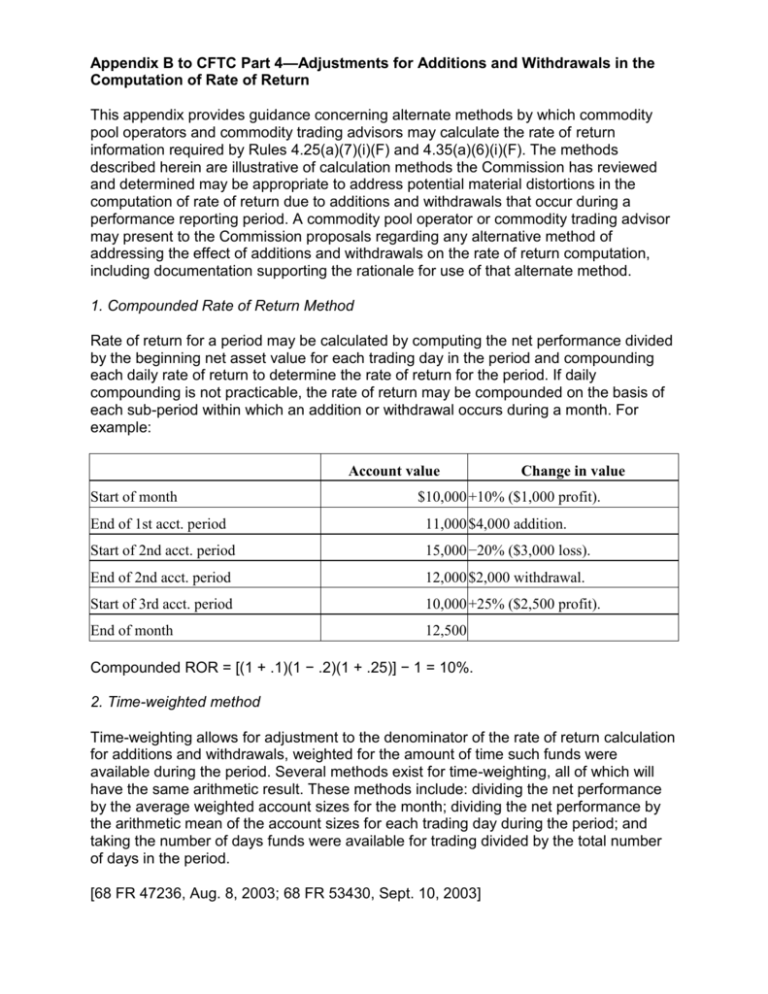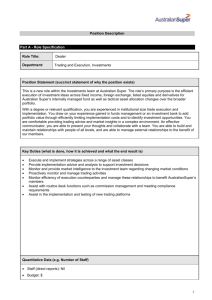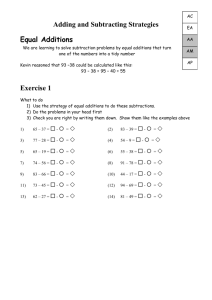Appendix B to CFTC Part 4
advertisement

Appendix B to CFTC Part 4—Adjustments for Additions and Withdrawals in the Computation of Rate of Return This appendix provides guidance concerning alternate methods by which commodity pool operators and commodity trading advisors may calculate the rate of return information required by Rules 4.25(a)(7)(i)(F) and 4.35(a)(6)(i)(F). The methods described herein are illustrative of calculation methods the Commission has reviewed and determined may be appropriate to address potential material distortions in the computation of rate of return due to additions and withdrawals that occur during a performance reporting period. A commodity pool operator or commodity trading advisor may present to the Commission proposals regarding any alternative method of addressing the effect of additions and withdrawals on the rate of return computation, including documentation supporting the rationale for use of that alternate method. 1. Compounded Rate of Return Method Rate of return for a period may be calculated by computing the net performance divided by the beginning net asset value for each trading day in the period and compounding each daily rate of return to determine the rate of return for the period. If daily compounding is not practicable, the rate of return may be compounded on the basis of each sub-period within which an addition or withdrawal occurs during a month. For example: Account value Start of month Change in value $10,000 +10% ($1,000 profit). End of 1st acct. period 11,000 $4,000 addition. Start of 2nd acct. period 15,000 −20% ($3,000 loss). End of 2nd acct. period 12,000 $2,000 withdrawal. Start of 3rd acct. period 10,000 +25% ($2,500 profit). End of month 12,500 Compounded ROR = [(1 + .1)(1 − .2)(1 + .25)] − 1 = 10%. 2. Time-weighted method Time-weighting allows for adjustment to the denominator of the rate of return calculation for additions and withdrawals, weighted for the amount of time such funds were available during the period. Several methods exist for time-weighting, all of which will have the same arithmetic result. These methods include: dividing the net performance by the average weighted account sizes for the month; dividing the net performance by the arithmetic mean of the account sizes for each trading day during the period; and taking the number of days funds were available for trading divided by the total number of days in the period. [68 FR 47236, Aug. 8, 2003; 68 FR 53430, Sept. 10, 2003]











